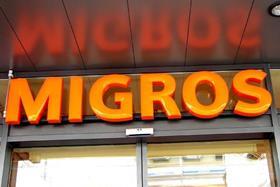
While both the Austrian and Swiss retail markets entered something of a mini-downturn in the wake of the economic crisis that gripped much of the globe in 2008, both are expected to bounce back to strong sales levels over the course of the next 12 months.
According to market analyst Planet Retail, Austria, for example, is set to see retail sales climb, first experiencing a year-on-year upturn at the end of 2010, and then returning to levels last seen in 2008 by the culmination of 2011.
In the Austrian food sector specifically, sales are growing at a similar rate, with consumers continuing to choose quality over price as a general rule.
German retailers remain the dominant force in Austria, with an ongoing trend towards the diminishing importance of Austrian retailers – as outlined by the acquisition of Julius Meinl’s network of supermarkets by Rewe-owned Billa.
Still flying the flag is Spar Austria, which sits in second place in terms of sales with €3.7bn for a 20.8 per cent market share, some way behind market leader Rewe which boasts grocery sales of €5.4bn and a 28.7 per cent share of the market, according to Planet Retail.
Similarly, German companies dominate the rest of the list of Austria’s top retailers, with Aldi in third place (sales of €2.8bn, market share of 28.7 per cent), Schwarz Group in fourth (€800m, 4.5 per cent) and Metro Group in fifth (€500m, 0.3 per cent).
This presence is crucial for competition Austria, although German chains’ strong market penetration combined with a closely ingrained affinity with Austrian culture has made it difficult for other foreign retailers to engage with the market. This has not stopped Italian discounter EuroSpin from plotting its expansion into Austria, however, with Tyrol marked down as the point of entry despite several previous postponements, Planet Retail notes.
Supermarkets remain the dominant Austrian format, serving urban centres and smaller communities alike with an emphasis on fresh foods. Spar continues to be the largest single operator, followed by Rewe’s Billa and Merkur stores. However, sales growth has weakened with the rise of the discounters, led by Aldi and followed by Lidl and Penny, with dynamic expansion driven by an improved consumer perception of product quality.
Across the border in Switzerland, a similar overall pattern is emerging, with sales forecast to jump above 2008 levels as early as the end of this year, Planet Retail estimates. Like Austria, and perhaps even more so, Swiss consumers focus on food quality over price, with sales in this sector making up a higher proportion than in other European countries.
In contrast to neighbouring Austria, domestic retailers continue to dominate the Swiss market. Migros leads the way, with grocery sales of just over €8.7bn and a grocery spend market share of 36 per cent, closely followed by Coop Schweiz, which boasts sales of €7.7bn and a market share of 30 per cent. If anything, this domestic grip is tightening – market share has grown year-on-year for Migros and Coop by 7.3 per cent and 6 per cent respectively, Planet Retail explains.
German discounter Aldi, in third place in terms of sales, and fellow countryman Rewe, remain some way behind, battling against historically strong internal growth that was aided by the absence of competition authority WEKO in the country before 1995.
As of yet, there is no real indication of any major shift in power away from Swiss groups, according to Planet Retail – a point emphasised with the further cementing of Coop’s position through the acquisition of Carrefour’s Swiss operations – although there are some signs of life from the German contingent. Aldi has been involved in Switzerland since 2005, while fellow discounter Lidl opened its first batch of 13 stores in the country last year, and their entry has started to have a small impact on the market. Indeed, Planet Retail reports that the German companies’ presence has been upsetting the excessive prices in the country that have been held in place by traditionally low competition.
And both discounters are taking a proactive view in Switzerland, with Lidl looking to double its store portfolio and Aldi undertaking promotional activities earlier this year, championing its fresh produce offering.
Denner is the only discount operator in Switzerland with more than 400 stores, and while others threaten to break through, discount prices are not expected to drop as much as in Germany due to high import tariffs.
Like Austria, supermarkets are the largest single format group on the market, with both Migros and Coop operating sizeable networks and focusing on growth in larger-sized outlets.



